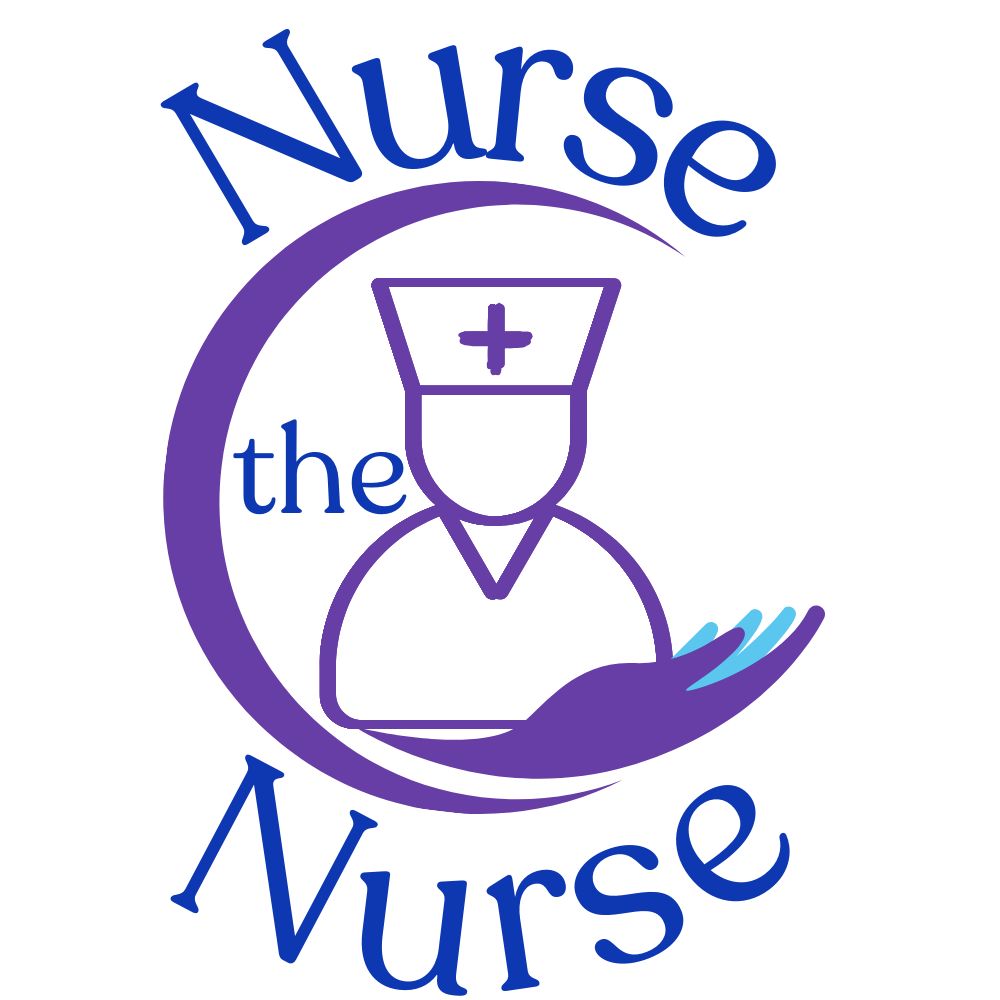Autonomy in Nursing: Empowering Nurses for Better Patient Care
Autonomy in nursing encompasses a nurse’s ability to make independent decisions regarding patient care within their scope of practice, based on their knowledge and experience.

Navigating the intricacies of autonomy in nursing, this article answers the pressing question of its significance. We explore how autonomy equips nurses with the agency to make better decisions for patient care, propels their career growth, and impacts healthcare outcomes. It uncovers the layers of autonomy in clinical and practice settings, examines its link with nurse and patient satisfaction, and outlines strategies for enhancing autonomous practices without sacrificing collaborative dynamics.
Key Takeaways
- Nursing autonomy is bifurcated into clinical autonomy, which allows for independent, knowledgeable patient care decision-making leading to improved outcomes, and practice autonomy, which extends to broader healthcare decision-making and policy influence.
- Autonomous nursing practices positively impact patient care, reducing mortality rates and hospital stays and improving patient satisfaction, while also emphasizing the importance of nurse-patient relationships and ethical considerations in patient advocacy.
- Promotion of nursing autonomy contributes to job satisfaction, professional growth, and a healthy workforce, supported by continuous education, certifications, and a supportive work environment that encourages collaboration and effective communication.
Ethical Principles
The ethical framework of nursing is built upon seven fundamental principles that guide nurses in their daily practice. Some sources cite only the first four, but many include all seven. These principles ensure that nurses provide care that is ethical, patient-centered, and professional.
- Justice: Justice in nursing means treating patients fairly and equitably. It involves the fair distribution of resources, respect for patients' rights, and impartiality in care.
- Autonomy: Autonomy respects the right of patients to make their own healthcare decisions. Nurses uphold this principle by providing all the necessary information to patients and supporting their informed choices.
- Beneficence: Beneficence requires nurses to contribute to the well-being and health of patients. It involves taking actions that are in the best interest of the patient and actively promoting good.
- Nonmaleficence: Nonmaleficence is the commitment to do no harm. Nurses must protect their patients from harm and ensure that interventions do not cause unnecessary suffering or injury.
- Accountability: This principle obligates nurses to be responsible for their actions, decisions, and the outcomes of their care. It also involves being answerable to oneself, the patient, and the healthcare organization.
- Fidelity: Fidelity refers to the principle of keeping one's promises or commitments. In nursing, this means maintaining the trust of patients by providing care that is consistent with what has been promised or agreed upon.
- Veracity: Veracity stands for truthfulness. Nurses must be honest and provide accurate information to patients, allowing for informed consent and ethical decision-making.
Understanding Autonomy in Nursing Practice

Autonomy in nursing encompasses a nurse’s ability to make independent decisions regarding patient care within their scope of practice, based on their knowledge and experience. It is a cornerstone of the nursing profession, allowing nurses to perform nursing actions that are not only independently governed but also rooted in their expertise.
Autonomy in nursing is bifurcated into clinical autonomy and practice autonomy. Both aspects are crucial in shaping a nurse’s role, influencing their degree of independence in decision-making, and their ability to influence the quality of patient care.
Clinical Autonomy
Clinical autonomy is a critical component of nursing practice, allowing nurses to:
- Exercise their professional expertise and knowledge to enhance patient care
- Make informed decisions and judgments about individual patient care
- Lead to improved clinical outcomes
This level of nurse autonomy empowers nurses to provide the best possible care for their patients.
At the heart of clinical autonomy lies the ability to think critically. Registered Nurses engage in critical thinking, making independent decisions within their defined scope of practice, which is crucial for optimizing patient care.
Practice Autonomy
On the other hand, practice autonomy extends beyond clinical decisions to the broader aspects of healthcare. It involves influencing organizational decisions and operations to improve efficiency and patient care.
Practice autonomy empowers nurses to:
- Use their professional knowledge to make decisions about patient care
- Influence the healthcare team
- Foster better communication and shared decision-making with other medical professionals
- Enhance the quality of care and patient outcomes.
Moreover, it encourages nursing staff to participate in decision-making, impacting policies and operations, which in turn affect healthcare delivery and their professional satisfaction.
The Impact of Autonomy on Patient Care

Nursing autonomy doesn’t exist in a vacuum; it has profound impacts on patient care. Hospitals that elevated their nursing autonomy scores witnessed a significant drop in 30-day post-surgery mortality rates, linking higher nursing autonomy to better patient outcomes. This association illustrates the powerful ripple effect that nursing autonomy can have on patient care and outcomes.
Moreover, autonomy fosters a nurturing nurse-patient relationship, which can result in reduced hospitalization times and improved patient satisfaction with the care received. In essence, autonomy in nursing isn’t just about empowering nurses; it’s also about empowering patients, leading to a more collaborative and patient-centered approach to care.
Improved Decision-Making
Autonomy plays a pivotal role in enhancing the decision-making abilities of nurses. It includes critical thinking and decision-making, vital for exercising self-governance and forming supportive patient relationships. For example, clinical autonomy empowers nurses to make critical decisions in emergency situations, such as administering CPR, leading to timely intervention and enhanced patient care.
Moreover, professional autonomy allows nurses to:
- Extend beyond standard practices
- Act in the best interest of patients to enhance care quality
- Promptly implement medical treatments
- Influence staff policies, directly improving patient care
However, exercising autonomy also involves ethical challenges, requiring nurses to balance individual decision-making with adherence to guidelines and protocols to maintain patient safety.
Patient Advocacy
A significant aspect of nursing autonomy is patient advocacy. The transition from medical paternalism to a shared decision-making model emphasizes the ethical principle of autonomy in patient care. Nurses play a crucial role in representing their patients’ medical wishes for informed decision-making, ensuring patient autonomy is respected.
Empathy and effective communication are vital in supporting a patient’s autonomy in the decision-making process, especially for surgical patients. When patients resist care, it often indicates a need for enhanced patient advocacy and a reinforcement of their autonomous rights. Therefore, nurses must prioritize advocating for their patients’ best interests while upholding professional integrity and collaborative practices with healthcare colleagues.
Enhancing Job Satisfaction and Professional Growth

Autonomy in nursing has far-reaching benefits, extending beyond patient care to enhancing job satisfaction and professional growth among nurses. It fosters a sense of ownership and accountability, allowing nurses to:
- Take pride in their work
- Make decisions based on their expertise and knowledge
- Advocate for their patients
- Collaborate with other healthcare professionals
- Continuously improve their skills and knowledge
This autonomy greatly influences their overall job satisfaction and contributes to their professional growth.
Autonomy also results in:
- Reduced levels of burnout among nurses
- Positively impacting their psychological empowerment and commitment to their roles
- Better engagement and motivation at work
- Contributing to a healthier and more effective workforce.
Increased Job Satisfaction
Nursing autonomy is instrumental in enhancing job satisfaction. It aligns with their personal and professional values, boosting their engagement and motivation at work. This increased job satisfaction reflects in the quality of care they provide, ultimately benefiting the patient.
Workplaces that foster autonomy and provide resources for coping with stress can help prevent nurse burnout and enhance job satisfaction. This not only leads to more productive and satisfied nurses but also contributes to a positive work environment that promotes high-quality patient care.
Opportunities for Career Advancement
Autonomy in nursing practice fosters career progression, motivating nurses to seek leadership roles and continuing education opportunities. It opens avenues for nurses to influence their working conditions and practices, leading to higher roles and opportunities in leadership within healthcare organizations.
Higher education in nursing correlates with:
- Greater professional autonomy
- Attaining baccalaureate and master’s degrees equips nurses with advanced knowledge and skills
- Fostering greater autonomy
- Enhancing opportunities for career advancement.
Strategies to Foster Autonomy in Nursing Practice

Fostering autonomy in nursing practice requires a strategic approach that combines continuous education, certifications, and creating a supportive work environment. Bolstering a nurse’s professional competence through their education and certifications enhances their autonomy, allowing them to make informed decisions in patient care.
Furthermore, autonomy in nursing practice is enhanced when nurses effectively interact with other members of the healthcare team. A supportive environment that boosts confidence and reduces the fear of criticism or prosecution contributes significantly to nursing autonomy.
Education and Certification
Continuous education and certifications play a crucial role in enhancing nursing autonomy and advancing one’s nursing career. They equip nurses with the latest evidence-based practices and technological innovations necessary for making informed decisions in patient care. In this context, nursing refers to the professional growth supported by organizations such as the American Nurses Credentialing Center.
Furthermore, nurses who acquire specialty certifications and specific clinical training exhibit higher levels of expert knowledge, enhancing their professional autonomy. Institutional support through initiatives like tuition reimbursement can be instrumental in advancing nurses’ skills and competence, fostering greater autonomy in practice.
Supportive Work Environment
A supportive work environment is fundamental in promoting nursing autonomy. Healthcare organizations that clearly articulate expectations for autonomous practice and support the application of nursing knowledge in patient care can enhance nursing autonomy.
Moreover, fostering a culture of collaboration within healthcare teams helps leverage collective knowledge and enhances the balance between autonomy and control. Nurse leaders play a critical role in fostering autonomy by supporting nurses in decision-making and encouraging their participation in organizational committees.
High-Autonomy Nursing Roles and Settings

High-autonomy nursing roles are typically characterized by significant decision-making authority and independence in practice. These roles include positions where nurses have the opportunity to influence patient care and outcomes significantly.
These roles, such as registered nurse practitioners and clinical nurse specialists, allow nurses to practice with a high degree of independence, often making independent patient care decisions.
Nurse Practitioners
Nurse Practitioners (NPs) are Advanced Practice Registered Nurses who can specialize in fields like Mental Health, Gerontology, or Family Practice. These health care professionals enjoy a high degree of professional autonomy, often making independent patient care decisions.
NPs are authorized to:
- Perform comprehensive patient assessments and diagnoses
- Order diagnostic and laboratory tests
- Manage treatment plans
- Prescribe medications
- Coordinate patient care with other healthcare professionals
Depending on the state, NPs may practice autonomously without physician oversight or may have limited scopes of practice due to reduced or restricted practice regulations.
Independent Practice Settings
Independent practice settings offer nurse practitioners the opportunity to exercise autonomy by delivering both primary and specialty care services within the context of clinical practice. These settings, such as private clinics, empower nurses to provide patient-centered care by focusing on the specific needs and lifestyle of each patient to customize their treatment plans.
However, establishing an independent practice involves navigating through various steps such as:
- Obtaining state licensure
- DEA registration
- Insurance reimbursement contract negotiation
- Billing system creation
These processes, while complex, ultimately enhance the autonomy and independence of nurses in practice.
Ethical Considerations and Challenges in Nursing Autonomy
While autonomy is a fundamental principle in nursing, it does not come without ethical considerations and challenges. Nurses’ perception of patients can affect autonomy, with ‘good’ patients viewed as collaborative and ‘bad’ patients seen as demanding, creating ethical challenges in providing patient-centered care.
Balancing Autonomy and Collaboration
Balancing autonomy and collaboration in a healthcare team is a delicate act. Effective communication is crucial in ensuring alignment with organizational goals while promoting individual decision-making.
Fostering a culture of collaboration within healthcare teams helps leverage collective knowledge and enhances the balance between autonomy and control. This balance is crucial in ensuring a harmonious and effective healthcare environment that prioritizes patient care and outcomes.
Summary
In conclusion, autonomy in nursing is a vital principle that empowers nurses to make independent decisions, enhancing patient care and outcomes. It also fosters job satisfaction and professional growth, motivating nurses to constantly enhance their skills and knowledge. However, it’s crucial to balance autonomy with ethical considerations and collaboration within healthcare teams to ensure alignment with organizational goals and patient-centered care. Ultimately, fostering autonomy in nursing is about empowering nurses to provide the best care possible, leading to a healthier and happier society.
Frequently Asked Questions
What is an example of autonomy in healthcare?
Clinical autonomy in healthcare can be seen when nurses make critical decisions during emergencies, such as performing CPR when necessary, showcasing their ability to independently provide care. This highlights the crucial role nurses play in making autonomous clinical decisions in the fast-paced healthcare environment.
The 7 Basic Ethical Principles of Nursing
The ethical framework of nursing is built upon seven fundamental principles that guide nurses in their daily practice. Some sources cite only the first four, but many include all seven. These principles ensure that nurses provide care that is ethical, patient-centered, and professional.
- Justice: Justice in nursing means treating patients fairly and equitably. It involves the fair distribution of resources, respect for patients' rights, and impartiality in care.
- Autonomy: Autonomy respects the right of patients to make their own healthcare decisions. Nurses uphold this principle by providing all the necessary information to patients and supporting their informed choices.
- Beneficence: Beneficence requires nurses to contribute to the well-being and health of patients. It involves taking actions that are in the best interest of the patient and actively promoting good.
- Nonmaleficence: Nonmaleficence is the commitment to do no harm. Nurses must protect their patients from harm and ensure that interventions do not cause unnecessary suffering or injury.
- Accountability: This principle obligates nurses to be responsible for their actions, decisions, and the outcomes of their care. It also involves being answerable to oneself, the patient, and the healthcare organization.
- Fidelity: Fidelity refers to the principle of keeping one's promises or commitments. In nursing, this means maintaining the trust of patients by providing care that is consistent with what has been promised or agreed upon.
- Veracity: Veracity stands for truthfulness. Nurses must be honest and provide accurate information to patients, allowing for informed consent and ethical decision-making.
Why is patient autonomy important?
Patient autonomy is important because it allows individuals to make informed decisions about their own health based on accurate information, empowering them to actively participate in their care. This ensures that their decisions are tailored to their unique circumstances.
What is clinical autonomy?
Clinical autonomy in nursing practice includes the capacity to exercise clinical judgment, authority to make patient care decisions, and practicing within a professional context with interdisciplinary collaboration.
What are the 4 main ethical principles in nursing?
The four main ethical principles in nursing that guide nurses in providing care that is respectful of and responsive to individual patient preferences, needs, and values are:
- Autonomy: This principle respects the patient's right to make their own decisions. In healthcare, this means that patients have the right to make informed choices about their care and treatment plans.
- Beneficence: This principle refers to the obligation of healthcare professionals to help people by doing what is best for them. Beneficence involves balancing the benefits of treatment against the risks and costs involved, aiming to do the most good.
- Non-maleficence: Often simplified to "do no harm," this principle requires that nurses and other healthcare providers avoid causing harm to patients. This includes preventing harm, removing harm, and not contributing to harm.
- Justice: Justice in healthcare is about fairness in the distribution of resources and the delivery of care. It means treating individuals and groups equitably, distributing benefits, risks, and costs fairly, and ensuring that everyone has access to an adequate level of care.
How does autonomy enhance job satisfaction in nursing?
Autonomy enhances job satisfaction in nursing by aligning with nurses' personal and professional values, thus boosting their engagement and motivation at work.
FAQ Section
Q: What is nursing autonomy? A: Nursing autonomy is the ability of nurses to make decisions and take actions based on their professional knowledge and judgment without unnecessary oversight.
Q: Why is autonomy important in nursing? A: Autonomy is important in nursing because it allows nurses to provide patient-centered care, improves job satisfaction, reduces burnout, and leads to better patient outcomes.
Q: How can healthcare organizations promote nursing autonomy? A: Healthcare organizations can promote nursing autonomy by investing in continuous education, fostering supportive leadership, encouraging collaborative practice, implementing favorable policies, and utilizing technology to support independent decision-making.
